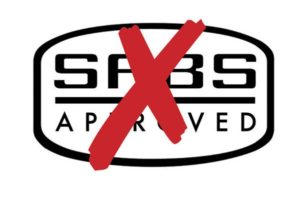
In a recent order by Gauteng Division of the High Court, the South African Bureau of Standards (SABS) was awarded damages for the unlawful use of its certification trade mark by a supplier of sanitisers and disinfectants.
The SABS became aware of the manufacturer falsely using the ‘SABS Approved’ certification mark on its sanitisers and disinfectants in early 2020. After numerous appeals to stop the unlawful use of the certification mark went unheeded, the SABS sought the legal services of Adams & Adams, a leading law firm specialising in intellectual property, to ensure that the unauthorised use of the certification mark was ceased.
An application was filed in the Gauteng High Court based on the infringement of the certification mark, seeking an order that would restrain the unauthorised use thereof, as well as the recovery of damages as a result of such use.
The order, which was handed down on 21 October 2021, awarded R458 742 in damages to the SABS, and issued an instruction to the supplier to stop using the ‘SABS Approved’ certification mark and remove it from all its packaging and products.
Werina Griffiths, a partner at Adams & Adams, says, “While we are pleased that an order was granted in our client’s favour successfully enforcing its registered certification mark, the case also highlights the importance of registering these special types of trade marks – which indicate products or services meet certain requirements, have certain characteristics, or have undergone a certain process – to enable proprietors to enforce and protect them.”
The enforcement of a certification mark further safeguards against potential reputational damage to its proprietor (for instance, where a product falsely claims to be certified and causes harm), and can ensure consumer safety, as in this case, which involved a product category that played a critical role in the response to the Covid-19 pandemic.
“The SABS’s actions in initiating legal action in the interest of public safety and the protection of the trusted ‘SABS Approved’ certification mark demonstrates its commitment to the protection of the mark,” adds Griffiths.
In a world in which consumers are paying more attention to the claims that brands are making about their products, the role of a certification mark is increasingly important.
“Not only does a certification mark offer the consumer assurance of the integrity of a product, but it holds commercial value both for businesses who choose to participate in the certification processes and the organisations undertaking the testing and certification service – processes which naturally require significant investment. Protection of a certification mark is critical in upholding this integrity,” concludes Griffiths.
